#cory wheaton
Explore tagged Tumblr posts
Text
Picks & Shovels - Kickstarter Live!
Very excited to back the audiobook for @mostlysignssomeportents upcoming book Picks & Shovels, narrated by the marvelous @wilwheaton! I have been really enjoying this book series, both the writing by Mr. Doctorow and the narration provided by Mr. Wheaton. I am really looking forward to enjoying this latest installment.
3 notes
·
View notes
Text
due to recent events i was already reminiscing about how cory doctorow's book homeland opens with the main character attending burning man, where he plays dnd with wil wheaton in a yurt. and by an amazing coincidence, that book was on one of my carts at work today. actually i don't even have anything to add now that i skimmed through the first couple chapters of the book. that sure is what happens though. it wasn't a product of my fevered imagination
#missingno.exe#the fact that he goes to burning man barely has any relation to the plot i think cory doctorow just wanted to tell everyone abt burning man#and i guess he's friends with wil wheaton
3 notes
·
View notes
Text
Pluralistic is five

I'm on a 20+ city book tour for my new novel PICKS AND SHOVELS. Catch me in SEATTLE TONIGHT (Feb 19) for with DAN SAVAGE, and in TORONTO on SUNDAY (Feb 23) at Another Story Books. More tour dates here.

Five years and two weeks ago, I parted ways with Boing Boing, a website I co-own and wrote for virtually every day for 19 years ago. Two weeks later – five years ago from today – I started my own blog, Pluralistic, which is, therefore, half a decade old, as of today.
I've written an annual rumination on this most years since.
Here's the fourth anniversary post (on blogging as a way to organize thoughts for big, ambitious, synthetic works):
https://pluralistic.net/2024/02/20/fore/#synthesis
The third (on writing without analytics):
https://pluralistic.net/2023/02/19/drei-drei-drei/#now-we-are-three
The second (on "post own site, share everywhere," AKA "POSSE"):
https://pluralistic.net/2022/02/19/now-we-are-two/#two-much-posse
I wasn't sure what I would write about today, but I figured it out yesterday, in the car, driving to my book-launch event with Wil Wheaton at LA's Diesel Books (tonight's event is in Seattle, with Dan Savage):
https://www.eventbrite.com/e/cory-doctorow-with-dan-savage-picks-and-shovels-a-martin-hench-novel-tickets-1106741957989
I was listening to the always excellent Know Your Enemy podcast, where the hosts were interviewing Chris Hayes:
https://know-your-enemy-1682b684.simplecast.com/episodes/pay-attention-w-chris-hayes-OA3C8ZMp
The occasion was the publication of Hayes's new book, The Sirens' Call, about the way technology interacts with our attention:
https://sirenscallbook.com
The interview was fascinating, and steered clear of moral panic about computers rotting our brains (shades of Socrates' possibly apocryphal statements that reading, rather than memorizing, was destroying young peoples' critical faculties). Instead, Hayes talked about how empty it feels to read an algorithmic feed, how our attention gets caught up by it, sometimes for longer than we planned, and then afterward, we feel like our attention and time were poorly spent. He talked about how reflective experiences – like reading a book with his kid before school – are shattered by pocket-buzzes as news articles came in. And he talked about how satisfying it was to pay protracted attention to something important, and how hard that was.
Listening to Hayes's description, I realized two things: first, he was absolutely right, those are terrible things; and second, I barely experience them (though, when I do, it makes me feel awful). Both of these are intimately bound up with my blogging and social media habits.
15 years ago, I published "Writing in the Age of Distraction," an article about preserving your attention in a digital world so you could get writing done. We live in a very different world, but the advice still holds up:
https://www.locusmag.com/Features/2009/01/cory-doctorow-writing-in-age-of.html
In particular, I advised readers to turn off all their alerts. This is something I've done since before the smartphone era, tracking down the preferences that kept programs like AIM, Apple Mail and Google Reader from popping up an alert when a new item appeared. This is absolutely fundamental and should be non-negotiable. When I heard Hayes describe how his phone buzzes in his pocket whenever there is breaking news, I was actually shocked. Do people really allow their devices to interrupt them on a random reinforcement schedule? I mean, no wonder the internet makes people go crazy. I'm not a big believer in BF Skinner, but I think it's well established that any stimulus that occurs at random intervals is impossible to get used to, and shocks you anew every time it recurs.
Rather than letting myself get pocket-buzzed by the news, I have an RSS reader. You should use an RSS reader, seriously:
https://pluralistic.net/2024/10/16/keep-it-really-simple-stupid/#read-receipts-are-you-kidding-me-seriously-fuck-that-noise
I periodically check in with my reader to see what stories have been posted. The experience of choosing to look at the news is profoundly different from having the news blasted at you. I still don't always choose wisely – I'm as guilty of scrolling my phone when I could be doing something more ultimately satisfying as anyone else – but the affect of being in charge of when and how I consume current events is the opposite of the feeling of being at the beck-and-call of any fool headline writer who hits "publish."
This is even more important in the age of smartphones. Whenever you install an app, turn off its notifications. If you forget and an app pushes you an update ("Hi, this is the app you used to pay your parking meter that one time! We're having a 2% off sale on parking spots in a different city from the one you're in now and we wanted to make sure you stopped whatever you were doing and found out about it RIGHT NOW!") then turn off notifications for that app. Consider deleting it. Your phone should buzz when you're expecting a call, or an important message.
Note I said important message. I also turn off notifications for most of the apps I use that have a direct-messaging function. I check in with my group chats periodically, but I never get interrupted by friends across town or across the world posting photos of lunch or kvetching about the guy who farted next to them on the subway. I look at those chats when I'm taking a break, not when I'm trying to get stuff done. It's really nice to stay on top of your friends' lives without feeling low-grade resentment for how they interrupted your creative fog with a ganked Tiktok video of a zoomer making fun of a boomer for getting mad at a millennial for quoting Osama bin Laden. There's times when it makes sense to turn on group-chat notifications – like when you're on a group outing and trying to locate one another – but the rest of the time, turn it off.
Now, there are people I need to hear from urgently, who do get to buzz my pockets when something important comes up – people I'm working on a project with, say, or my wife and kid. But I also have all those people trained to send me emails unless it's urgent. You know the norm we have about calling someone out of the blue being kind of gross and rude? That's how you should feel about making someone's pocket buzz, unless it's important. Send those people emails.
I visit my email in between other tasks and clear out my inbox. If that sounds impossible, I have some suggestions for how to manage it:
https://www.theguardian.com/technology/2010/dec/21/keeping-email-address-secret-spambots
Tldr? Get you some mail rules:
add everyone you correspond with to an address book called "people I know"
filter emails from anyone in the "people I know" address book into a high priority inbox, which you just treat as your regular inbox
look at the unfiltered inbox (full of people you've never corresponded with) every day or two and reply to messages that need replying (and those people will thereafter be filtered into the "people I know" inbox)
filter any message containing the world "unsubscribe" into a folder called "mailing lists"
if you're subscribed to mailing lists that you feel you can't leave because it would be impolite, filter them into a folder called "mailing lists" unless the message contains your name (so you can reply promptly if someone mentions you on the list)
The point here is to manage your attention. You decide when you want to get non-urgent communications, and mail-app automation automatically flags the stuff that you are most likely to want to see. For extra credit: adopt a "suspense file" that lets you manage other peoples' emails to you:
https://pluralistic.net/2024/10/26/one-weird-trick/#todo
Now, let's talk about algorithmic feeds. Lots of phosphors have been spilled on this subject, and critics of The Algorithm have an unfortunately propensity to buy into the self aggrandizement of soi-dissant evil sorcerer tech bros who claim they can "hack your dopamine loops" by programming an algorithmic feed. I think this is bullshit. Mind-control rays are nonsense, whether they are being promoted by Rasputin or a repentant Prodigal Tech Bro:
https://conversationalist.org/2020/03/05/the-prodigal-techbro/
But I hate algorithmic feeds. To explain why, I should explain how much I love non-algorithmic feeds. I follow a lot of people on several social media services, and I almost never feel the need to look at trending topics, suggested posts, or anything resembling the "For You" feed. Sure, there's times when I want to turn on the ole social TV and see what's on – the digital equivalent of leaving the TV on in a hotel room while I unpack and iron my suit – but those times are rare.
Mostly what I get is a feed of the things that my friends think are noteworthy enough to share. Some of that stuff is "OC" (material they've posted themselves), but the majority of it is stuff they're boosting from the feeds of their friends. Now, I say friend but I don't know the majority of the people I follow. I have a parasocial relationship (these get an undeserved bad rap) with them.
We're "friends" in the sense that I think they have interesting taste. There's people I've followed for more than a decade without exchanging a single explicit communication. I think they're cool, and I repost the cool stuff they post, so the people who follow me can see it. Reposting is a way of collaborating with other people who've opted into sharing their attention-management with you:
https://pluralistic.net/2021/05/27/probably/
Reposting with a comment? Even better – you're telling people why to pay attention to that thing, or, more importantly, why they can safely ignore it if it's not their thing (what Bruce Sterling memorably calls an "attention conservation notice"). This is why Mastodon's decision not to implement quote-tweeting (over a misplaced squeamishness about "dunk culture") was such a catastrophic own-goal. If you're building a social network without an algorithmic suggestion feed (yay), you absolutely can't afford to block a feature that lets people annotate the material they boost into other people's timelines:
https://fediversereport.com/fediverse-report-104/
Remember how I said the affect of going to read the news is totally different (and infinitely superior) to the affect of having the news pushed to you? Same goes for the difference between getting a feed of things boosted and written by people you've chosen to follow, and getting a feed of things chosen by an algorithm. This is for reasons far more profound than the mere fact that algorithms use poor signals to choose those posts (e.g. "do a lot of people seem to be arguing about this post?").
For me, the problem with algorithmic feeds is the same as the problem with AI art. The point of art is to communicate something, and art consists of thousands of micro-decisions made by someone intending to communicate something, which gives it a richness and a texture that can make art arresting and profound. Prompting an AI to draw you a picture consists of just a few decisions, orders of magnitude fewer communicative acts than are embodied in a human-drawn illustration, even if you refine the image through many subsequent prompts. What you get is something "soulless" – a thing that seems to involve many decisions, but almost all of them were made by a machine that had no communicative intent.
This is the definition of "uncanniness," which is "the seeming of intention without intending anything." Most of the "meaning" in an AI illustration is "meaning that does not stem from organizing intention":
https://pluralistic.net/2024/05/13/spooky-action-at-a-close-up/#invisible-hand
The same is true of an algorithmic feed. When someone you follow – a person – posts or boosts something into their feed, there is a human intention. It is a communicative act. It can be very communicative, even if it's just a boost, provided the person adds some context with their own commentary or quoting. It can be just a little communicative, too – a momentary thumbpress on the boost button. But either way, to read a feed populated by people, rather than machines, is to be showered with the communicative intent of people whom you have chosen to hear from. Perhaps you chose unwisely and followed someone whose communications are banal or offensive or repetitious. Unfollow them.
Most importantly, follow the people who are followed by the people you follow. If someone whose taste you like pleases or interests you time and again by promoting something by a stranger to your attention, then bring that stranger closer by making them someone you follow, too. Do this, again and again, and build a constellation of people who make you smile or make you think. Just the act of boosting and virtually handling the things those people make and boost gets that stuff into your skin and your thoughts:
https://pluralistic.net/2022/07/31/divination/
This is the good kind of filter bubble – the bubble of "people who interest me." I'm not saying that it's a sin to read an algorithmic feed, but relying on algorithmic feeds is a recipe for feeling empty, and regretful of your misspent attention. This is true even when the algorithm is good at its job, as with Tiktok, whose whole appeal is to take your hands off the wheel and give total control over to the autopilot. Even when an algorithm makes many good guesses about what you'll like, seeing something you like isn't as nice, as pleasing, as useful, as seeing that same thing as the result of someone else's intention.
And, of course, once you let the app drive, you become a soft target for the cupidity and deceptions of the app's makers. Tiktok, for example, uses its "heating tool" to selectively boost things into your feed – not because they think you'll like it, but because they want to trick the person whose content they're boosting into thinking that Tiktok is a good place to distribute their work through:
https://pluralistic.net/2023/01/21/potemkin-ai/#hey-guys
The value of an algorithmic feed – of an intermediated feed – is to help you build your disintermediated, human feed. Find people you like through the algorithm, follow them, then stop letting the algorithm drive.
And the human feed you consume is input for the human feed you create, the stream of communicative acts you commit in order to say to the world, "This is what feels good to spend my attention on. If this makes you feel good, too, then please follow me, and you will sit downstream of my communicative acts, as I sit downstream of the communicative acts of so many others."
The more communicative the feeds you emit are, the more reward you will reap. First, because interrogating your own attention – "why was this thing interesting?" – is a clarifying and mnemonic act, that lets you get more back from the attention you pay. And second, because the more you communicate about those attentive insights, the more people you will find who are truly Your People, a community that goes beyond "I follow this stranger" and gets into the realm of "this stranger and I are on the same side in a world of great peril and worry":
https://pluralistic.net/2021/05/09/the-memex-method/
Which brings me back to this blog and my fifth bloggaversary. Because a blog is a feed, but one that is far heavier on communications than a stream of boosted posts. Five years into this iteration of my blogging life (and 24 years into my blogging life overall), blogging remains one of the most powerful, clarifying and uplifting parts of my day.
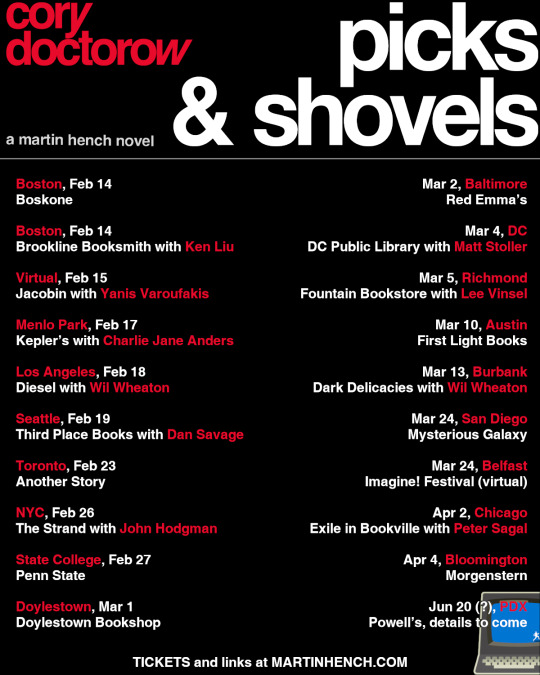
If you'd like an essay-formatted version of this post to read or share, here's a link to it on pluralistic.net, my surveillance-free, ad-free, tracker-free blog:
https://pluralistic.net/2025/02/19/gimme-five/#jeffty
240 notes
·
View notes
Text
Go RSVP today! It's free! The link above will take you straight there. This thing is shaping up to be really fucking cool, and I'm genuinely excited about it.
Some of the points on the schedule that I'm personally really excited about:
Hour 1 (8-9 PM EST / 5-6 PM PST)
Lynda Carter on superheroes and villains with Mark Hamill and Jon Cryer
Felicia Day (Supernatural, Buffy the Vampire Slayer, The Guild)
The casts of Supernatural and The Boys, moderated by Misha Collins and Eric Kripke, featuring Senator Cory Booker
Hour 2 (9-10 PM EST / 6-7 PM PST)
George Takei and Vote Forward on Letter Writing 101
Frank Conniff and John Fugelsang Present: Political Science Theater 3000
Legal analyst Elie Mystal (MSNBC) on The Lord of the Rings and SCOTUS as the Council of Elrond
Actor Sean Astin (The Lord of the Rings)
Vote Forward Presents: The Introvert’s Guide to Getting Out the Vote with Jacqueline Emerson (The Hunger Games)
Hour 3 (10-11 PM EST / 7-8 PM PST)
Bill Nye on the future of science in America
Science Fact to Science Fiction with former U.S. Chief Technology Officer Megan Smith and retired astronauts
Politician and voting rights activist Stacey Abrams on Star Trek
A conversation on Trek Activism with Jonathan Frakes, Robert Picardo, Anthony Rapp, Tim Russ, Jeri Ryan, and Wil Wheaton, moderated by The Big Bang Theory co-creator Bill Prady
Lynda Carter and members of the ERA Coalition on passing the Equal Rights Amendment

@teamlynda really spent a lot of time putting this together and also explaining Destielgate to her new best friend, Misha Collins.
Are you ready to Geek out the Vote?
#signal boost#fundraiser#geeks and nerds for harris walz#harris/walz#us politics#fandom#star trek#star wars#Lord of the Rings#Supernatural#Hunger Games#Bill Nye#Lynda Carter#astronauts#cool stuff
5K notes
·
View notes
Text

FOR SALE! FIND THIS ITEM & MORE AT screaming-greek.com or check out the link in my bio. Stand By Me - VHS - Used - Tested Starring Wil Wheaton, River Phoenix, Cory Feldman, Kiefer Sutherland, Jerry O'Connell Directed By Rob Reiner Columbia Pictures 1987 Read the full article
1 note
·
View note
Text
One of my favorite authors Cory Doctorow wrote a really cool book that is a tech thriller about crypto currency that is somehow anti crypto currency set in the near future. I really recommend all his novels and they are all DRM free. If you can’t afford to buy a copy some of his books are legally online for free on his site. He’s a big supporter of maker culture and is a fan of fan fiction. Also Wil Wheaton is the audiobook narrator.
1 note
·
View note
Text

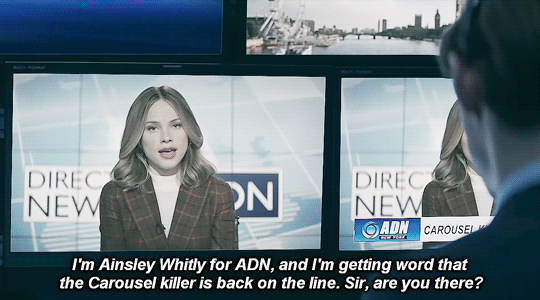
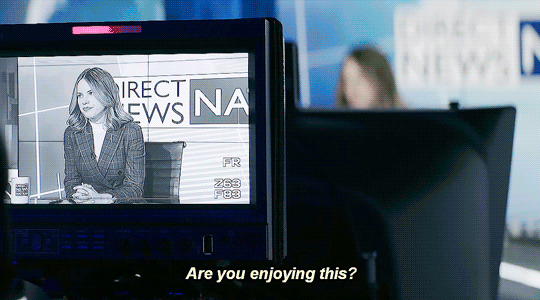
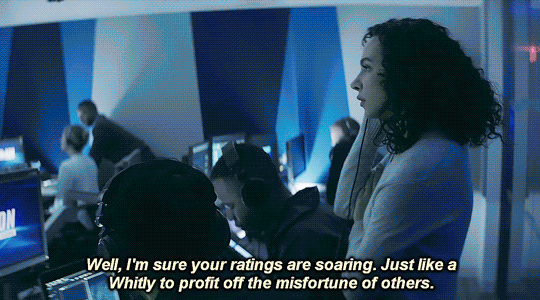
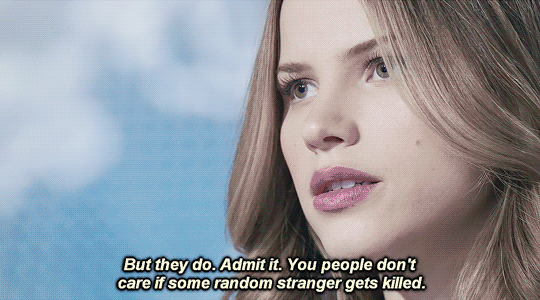
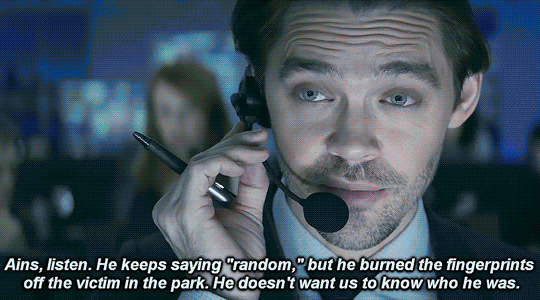


We got a lock on the phone. Those extra seconds did it.
#malcolm bright#dani powell#ainsley whitly#jessica whitly#cory wheaton#eye of the needle#prodigal son#the variety of tones in ainsley's voice throughout this episode...#the 'no one does' as she defended jess was very kind#'again...'
89 notes
·
View notes
Text
Embroidery and cross stitch art: https://www.tumblr.com/paintedstitches Cory Doctorow, coiner of the phrase, "enshittification": https://www.tumblr.com/mostlysignssomeportents
Wil Wheaton: https://www.tumblr.com/wilwheaton
Diane Duane: https://www.tumblr.com/dduane John Scalzi: https://www.tumblr.com/jscalzi
The Onion: https://www.tumblr.com/theonion
Cute animals: https://www.tumblr.com/everythingfox
NASA: https://nasa.tumblr.com/
Financial info: https://bitchesgetriches.tumblr.com/
Humans of New York: https://www.humansofnewyork.com/
Wildlife photography: https://landscapeexposurenetwork.tumblr.com/
Foxes in Love comic: https://foxes-in-love.tumblr.com/
Hourly recipes. Here there be danger: https://foodffs.tumblr.com/
Politics: https://liberalsarecool.com/
Quotes from Thich Nhat Hanh: https://thichnhathanhgems.tumblr.com/
Monterrey Bay Aquarium: https://montereybayaquarium.tumblr.com/
More to come when I gather some up. Feel free to reblog and add your own!
Starter Kit
So, like, one of the best things in Bluesky is the starter kits. We all know that the experience of a social media site is all about who you follow. A lot of us have been doing this thing long enough, we know how to find our people wherever we go. Like, when I moved to bsky, it was because a lot of my Twitter follows were going there, and it was easy enough to follow them, and as they brought others over and re-posted them, I followed those people, yadda. Same for when I got started on Tumblr. I knew enough people who were already here, all I had to do was follow them and the rest happened naturally. But there may be some Meta refugees arriving on the Tumblr shores who don't know anyone but one person. (Okay, me. I'm talking about my own personal friends who are looking for a place without censorship or algorithms.) One person does not a community make, and without more people to follow, Tumblr probably won't be very much fun. So I'm going to start reccing other Tumblrs -- in particular, from this account, mostly non-fannish Tumblrs. Politics. Art. Cute baby animals.
More to come.
7 notes
·
View notes
Text
Although I hadn’t seen him in more than ten years, I know I’ll miss him forever.
Stand By Me, 1986
#missing you extra today B#love you always#stand by me#river phoenix#wil wheaton#cory feldman#jerry o’connell#death cw
13 notes
·
View notes
Text

Via fb
7 notes
·
View notes
Text
1 note
·
View note
Text
Really enjoying listening to Red Team Blues by @mostlysignssomeportents, as read by @wilwheaton
1 note
·
View note
Photo
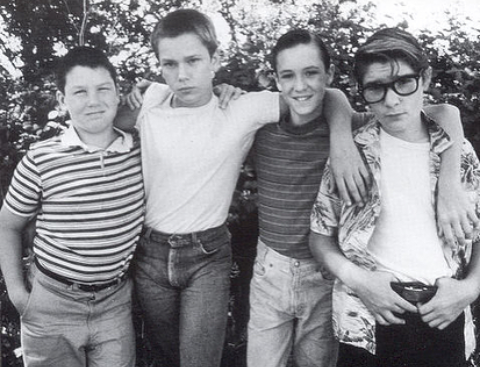
32 years of Stand By Me.
#stand by me#river phoenix#chris chambers#wil wheaton#gordie lachance#cory feldman#teddy duchamp#jerry o'connell#vern tessio#stephen king#movies
15 notes
·
View notes
Text
The Brave Little Toaster
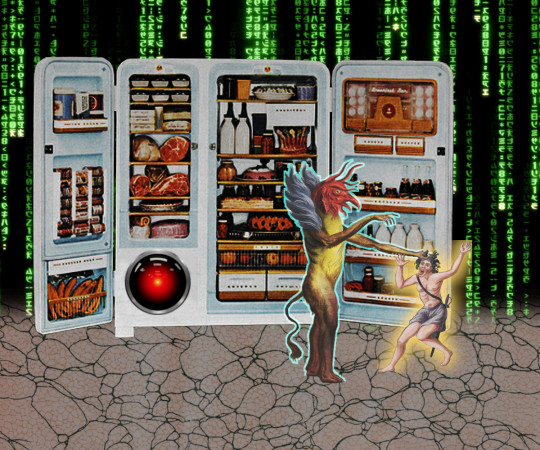
Picks and Shovels is a new, standalone technothriller starring Marty Hench, my two-fisted, hard-fighting, tech-scam-busting forensic accountant. You can pre-order it on my latest Kickstarter, which features a brilliant audiobook read by Wil Wheaton.

The AI bubble is the new crypto bubble: you can tell because the same people are behind it, and they're doing the same thing with AI as they did with crypto – trying desperately to find a use case to cram it into, despite the yawning indifference and outright hostility of the users:
https://pluralistic.net/2023/03/09/autocomplete-worshippers/#the-real-ai-was-the-corporations-that-we-fought-along-the-way
This week on the excellent Trashfuture podcast, the regulars – joined by 404 Media's Jason Koebler – have a hilarious – as in, I was wheezing with laughter! – riff on this year's CES, where companies are demoing home appliances with LLMs built in:
https://www.podbean.com/media/share/pb-hgi6c-179b908
Why would you need a chatbot in your dishwasher? As it turns out, there's a credulous, Poe's-law-grade Forbes article that lays out the (incredibly stupid) case for this (incredibly stupid) idea:
https://www.forbes.com/sites/bernardmarr/2024/03/29/generative-ai-is-coming-to-your-home-appliances/
As the Trashfuturians mapped out this new apex of the AI hype cycle, I found myself thinking of a short story I wrote 15 years ago, satirizing the "Internet of Things" hype we were mired in. It's called "The Brave Little Toaster", and it was published in MIT Tech Review's TRSF anthology in 2011:
http://bestsf.net/trsf-the-best-new-science-fiction-technology-review-2011/
The story was meant to poke fun at the preposterous IoT hype of the day, and I recall thinking that creating a world of talking appliance was the height of Philip K Dickist absurdism. Little did I dream that a decade and a half later, the story would be even more relevant, thanks to AI pump-and-dumpers who sweatily jammed chatbots into kitchen appliances.
So I figured I'd republish The Brave Little Toaster; it's been reprinted here and there since (there's a high school English textbook that included it, along with a bunch of pretty fun exercises for students), and I podcasted it back in the day:
https://ia803103.us.archive.org/35/items/Cory_Doctorow_Podcast_212/Cory_Doctorow_Podcast_212_Brave_Little_Toaster.mp3
A word about the title of this story. It should sound familiar – I nicked it from a brilliant story by Tom Disch that was made into a very weird cartoon:
https://www.youtube.com/watch?v=I8C_JaT8Lvg
My story is one of several I wrote by stealing the titles of other stories and riffing on them; they were very successful, winning several awards, getting widely translated and reprinted, and so on:
https://locusmag.com/2012/05/cory-doctorow-a-prose-by-any-other-name/
All right, on to the story!
One day, Mister Toussaint came home to find an extra 300 euros' worth of groceries on his doorstep. So he called up Miz Rousseau, the grocer, and said, "Why have you sent me all this food? My fridge is already full of delicious things. I don't need this stuff and besides, I can't pay for it."
But Miz Rousseau told him that he had ordered the food. His refrigerator had sent in the list, and she had the signed order to prove it.
Furious, Mister Toussaint confronted his refrigerator. It was mysteriously empty, even though it had been full that morning. Or rather, it was almost empty: there was a single pouch of energy drink sitting on a shelf in the back. He'd gotten it from an enthusiastically smiling young woman on the metro platform the day before. She'd been giving them to everyone.
"Why did you throw away all my food?" he demanded. The refrigerator hummed smugly at him.
"It was spoiled," it said.
#
But the food hadn't been spoiled. Mister Toussaint pored over his refrigerator's diagnostics and logfiles, and soon enough, he had the answer. It was the energy beverage, of course.
"Row, row, row your boat," it sang. "Gently down the stream. Merrily, merrily, merrily, merrily, I'm offgassing ethelyne." Mister Toussaint sniffed the pouch suspiciously.
"No you're not," he said. The label said that the drink was called LOONY GOONY and it promised ONE TRILLION TIMES MORE POWERFUL THAN ESPRESSO!!!!!ONE11! Mister Toussaint began to suspect that the pouch was some kind of stupid Internet of Things prank. He hated those.
He chucked the pouch in the rubbish can and put his new groceries away.
#
The next day, Mister Toussaint came home and discovered that the overflowing rubbish was still sitting in its little bag under the sink. The can had not cycled it through the trapdoor to the chute that ran to the big collection-point at ground level, 104 storeys below.
"Why haven't you emptied yourself?" he demanded. The trashcan told him that toxic substances had to be manually sorted. "What toxic substances?"
So he took out everything in the bin, one piece at a time. You've probably guessed what the trouble was.
"Excuse me if I'm chattery, I do not mean to nattery, but I'm a mercury battery!" LOONY GOONY's singing voice really got on Mister Toussaint's nerves.
"No you're not," Mister Toussaint said.
#
Mister Toussaint tried the microwave. Even the cleverest squeezy-pouch couldn't survive a good nuking. But the microwave wouldn't switch on. "I'm no drink and I'm no meal," LOONY GOONY sang. "I'm a ferrous lump of steel!"
The dishwasher wouldn't wash it ("I don't mean to annoy or chafe, but I'm simply not dishwasher safe!"). The toilet wouldn't flush it ("I don't belong in the bog, because down there I'm sure to clog!"). The windows wouldn't retract their safety screen to let it drop, but that wasn't much of a surprise.
"I hate you," Mister Toussaint said to LOONY GOONY, and he stuck it in his coat pocket. He'd throw it out in a trash-can on the way to work.
#
They arrested Mister Toussaint at the 678th Street station. They were waiting for him on the platform, and they cuffed him just as soon as he stepped off the train. The entire station had been evacuated and the police wore full biohazard containment gear. They'd even shrinkwrapped their machine-guns.
"You'd better wear a breather and you'd better wear a hat, I'm a vial of terrible deadly hazmat," LOONY GOONY sang.
When they released Mister Toussaint the next day, they made him take LOONY GOONY home with him. There were lots more people with LOONY GOONYs to process.
#
Mister Toussaint paid the rush-rush fee that the storage depot charged to send over his container. They forklifted it out of the giant warehouse under the desert and zipped it straight to the cargo-bay in Mister Toussaint's building. He put on old, stupid clothes and clipped some lights to his glasses and started sorting.
Most of the things in container were stupid. He'd been throwing away stupid stuff all his life, because the smart stuff was just so much easier. But then his grandpa had died and they'd cleaned out his little room at the pensioner's ward and he'd just shoved it all in the container and sent it out the desert.
From time to time, he'd thought of the eight cubic meters of stupidity he'd inherited and sighed a put-upon sigh. He'd loved Grandpa, but he wished the old man had used some of the ample spare time from the tail end of his life to replace his junk with stuff that could more gracefully reintegrate with the materials stream.
How inconsiderate!
#
The house chattered enthusiastically at the toaster when he plugged it in, but the toaster said nothing back. It couldn't. It was stupid. Its bread-slots were crusted over with carbon residue and it dribbled crumbs from the ill-fitting tray beneath it. It had been designed and built by cavemen who hadn't ever considered the advantages of networked environments.
It was stupid, but it was brave. It would do anything Mister Toussaint asked it to do.
"It's getting hot and sticky and I'm not playing any games, you'd better get me out before I burst into flames!" LOONY GOONY sang loudly, but the toaster ignored it.
"I don't mean to endanger your abode, but if you don't let me out, I'm going to explode!" The smart appliances chattered nervously at one another, but the brave little toaster said nothing as Mister Toussaint depressed its lever again.
"You'd better get out and save your ass, before I start leaking poison gas!" LOONY GOONY's voice was panicky. Mister Toussaint smiled and depressed the lever.
Just as he did, he thought to check in with the flat's diagnostics. Just in time, too! Its quorum-sensors were redlining as it listened in on the appliances' consternation. Mister Toussaint unplugged the fridge and the microwave and the dishwasher.
The cooker and trash-can were hard-wired, but they didn't represent a quorum.
#
The fire department took away the melted toaster and used their axes to knock huge, vindictive holes in Mister Toussaint's walls. "Just looking for embers," they claimed. But he knew that they were pissed off because there was simply no good excuse for sticking a pouch of independently powered computation and sensors and transmitters into an antique toaster and pushing down the lever until oily, toxic smoke filled the whole 104th floor.
Mister Toussaint's neighbors weren't happy about it either.
But Mister Toussaint didn't mind. It had all been worth it, just to hear LOONY GOONY beg and weep for its life as its edges curled up and blackened.
He argued mightily, but the firefighters refused to let him keep the toaster.
#
If you enjoyed that and would like to read more of my fiction, may I suggest that you pre-order my next novel as a print book, ebook or audiobook, via the Kickstarter I launched yesterday?
https://www.kickstarter.com/projects/doctorow/picks-and-shovels-marty-hench-at-the-dawn-of-enshittification?ref=created_projects

Check out my Kickstarter to pre-order copies of my next novel, Picks and Shovels!

If you'd like an essay-formatted version of this post to read or share, here's a link to it on pluralistic.net, my surveillance-free, ad-free, tracker-free blog:
https://pluralistic.net/2025/01/08/sirius-cybernetics-corporation/#chatterbox

Image: Cryteria (modified) https://commons.wikimedia.org/wiki/File:HAL9000.svg
CC BY 3.0 https://creativecommons.org/licenses/by/3.0/deed.en
#brave little toaster#iot#internet of things#internet of shit#fiction#short fiction#short stories#thomas m disch#science fiction#sf#gen ai#ai#generative ai#llms#chatbots#stochastic parrots#mit tech review#tech review#trashfuture#forbes#ces#torment nexus#pluralistic
222 notes
·
View notes
Text

River Phoenix and Wil Wheaton -
Stand By Me - 1986
Both boys so damaged by the Industry, ( or those that should have protected them ) Cory Feldman too
Only Jerry O'Connell got out relatively unscathed...
18 notes
·
View notes
Text
#92 Stand by Me (USA 1986)
youtube
Dir. Rob Reiner Rated R
Period Piece = Good Coming of Age = Good
#Stand By Me#cory feldman#rob reiner#stephen king#river phoenix#wil wheaton#kiefer sutherland#richard dreyfuss#coming of age#period pece#film#movie#top 100 films#top 100 movies
2 notes
·
View notes